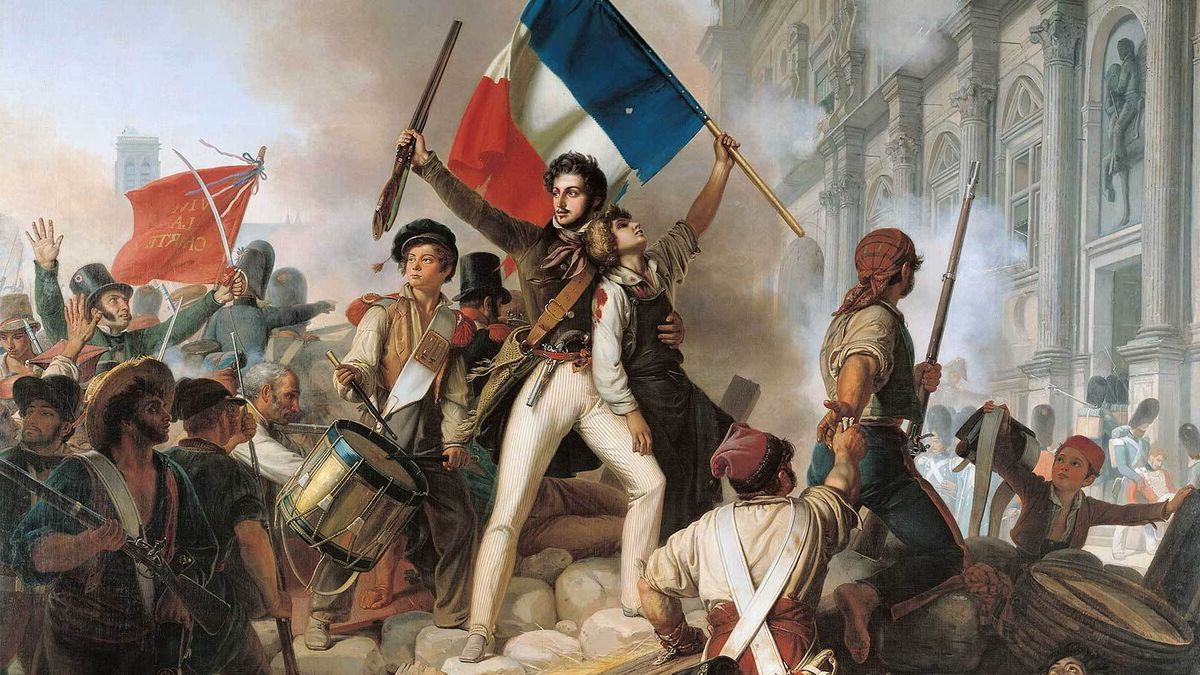
The French Revolution was a monumental period in history that reshaped not just France but the entire world. Ever wondered what sparked this massive upheaval? Economic hardship, social inequality, and political discontent brewed a storm that couldn't be contained. From the storming of the Bastille to the rise of Napoleon Bonaparte, this era was filled with dramatic events and larger-than-life characters. Did you know that the guillotine became a symbol of revolutionary justice? Or that the Declaration of the Rights of Man and of the Citizen laid the groundwork for modern human rights? Buckle up as we dive into 23 riveting facts about the French Revolution that will leave you amazed and enlightened.
The Spark of Revolution
The French Revolution was a pivotal event in world history. It reshaped France and influenced many other countries. Here are some intriguing facts about this monumental period.
- The French Revolution began in 1789 and lasted until 1799.
- It started due to widespread discontent with the French monarchy and the economic policies of King Louis XVI.
- The Estates-General, a general assembly representing the three estates of the realm, was convened for the first time in 175 years in May 1789.
- The Third Estate, representing commoners, broke away to form the National Assembly, marking the start of the revolution.
Key Events and Figures
Several key events and figures played crucial roles during the revolution. These moments and people left lasting impacts.
- The Storming of the Bastille on July 14, 1789, became a symbol of the revolution and is celebrated as France's National Day.
- Maximilien Robespierre, a leading figure, was known for his role during the Reign of Terror.
- The Reign of Terror, from September 1793 to July 1794, saw mass executions of perceived enemies of the revolution.
- King Louis XVI was executed by guillotine on January 21, 1793.
- Marie Antoinette, the queen, was also executed by guillotine on October 16, 1793.
Revolutionary Ideas and Changes
The revolution brought about significant changes in French society and governance. These ideas influenced future generations.
- The Declaration of the Rights of Man and of the Citizen, adopted in August 1789, laid the groundwork for modern human rights.
- Feudalism was abolished, and the privileges of the nobility were dismantled.
- The revolution led to the rise of secularism, reducing the power of the Catholic Church in France.
- The metric system was introduced during the revolution to standardize measurements.
The Role of Women
Women played vital roles during the revolution, advocating for their rights and participating in key events.
- Olympe de Gouges wrote the Declaration of the Rights of Woman and of the Female Citizen in 1791, demanding equal rights for women.
- Women participated in the Women's March on Versailles in October 1789, demanding bread and political reforms.
- The Society of Revolutionary Republican Women, founded in 1793, was one of the first women's political clubs.
International Impact
The French Revolution had a profound impact beyond France, influencing other nations and inspiring future movements.
- The revolution inspired the Haitian Revolution, leading to the first successful slave revolt and the establishment of Haiti as an independent nation.
- It influenced the development of modern democratic ideals and the spread of republicanism.
- The Napoleonic Wars, which followed the revolution, spread revolutionary ideas across Europe.
The End of the Revolution
The revolution eventually came to an end, but its legacy continued to shape France and the world.
- The revolution ended with the rise of Napoleon Bonaparte, who became the ruler of France in 1799.
- The Napoleonic Code, established by Napoleon, incorporated many revolutionary principles and influenced legal systems worldwide.
- The revolution led to the establishment of the First French Republic, which lasted until Napoleon declared himself Emperor in 1804.
- The French Revolution remains a symbol of the fight for liberty, equality, and fraternity.
The French Revolution's Lasting Impact
The French Revolution reshaped not just France but the entire world. It toppled a monarchy, introduced the concept of citizenship, and laid the groundwork for modern democracies. The Declaration of the Rights of Man and of the Citizen became a cornerstone for human rights globally. The revolution also sparked a wave of nationalism and inspired other countries to fight for their own freedom and equality.
Economic turmoil and social unrest were catalysts, but the revolution's ideals of liberty, equality, and fraternity continue to resonate. The Napoleonic Code, born from this period, influenced legal systems worldwide. While the revolution had its share of violence and chaos, its legacy is a testament to the power of collective action and the enduring quest for a fairer society. Understanding these facts helps appreciate the profound changes that shaped our modern world.
Was this page helpful?
Our commitment to delivering trustworthy and engaging content is at the heart of what we do. Each fact on our site is contributed by real users like you, bringing a wealth of diverse insights and information. To ensure the highest standards of accuracy and reliability, our dedicated editors meticulously review each submission. This process guarantees that the facts we share are not only fascinating but also credible. Trust in our commitment to quality and authenticity as you explore and learn with us.


